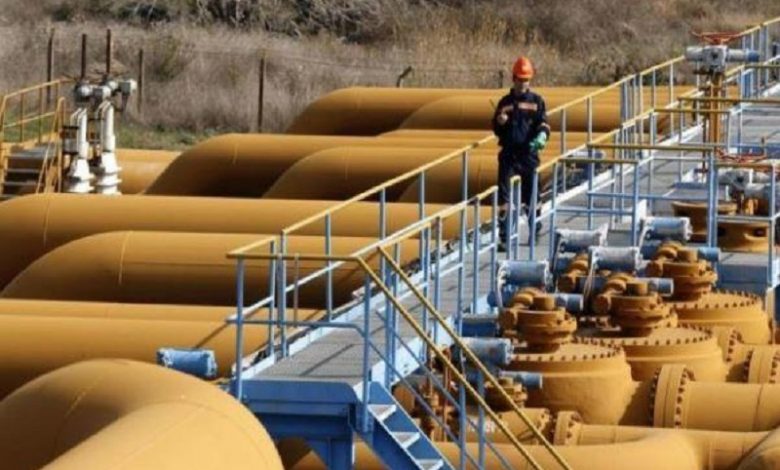
Saudi Arabia coalition does not leave a resource, a location, or an island in Yemen without stealing its resources, ignoring the suffering of Yemen, which has been exposed to a fierce war for seven years.
The Executive Director of the Yemeni Oil Company, Ammar Al-Adrai, confirmed that the siege countries headed by Saudi Arabia are stealing Yemeni oil and depositing its money in the National Bank.
Al-Adrai said, in statements, that Saudi Arabia is stealing Yemeni oil day and night without taking into account the needs of the country stricken by war, siege and disease.
He explained that Yemenis suffer in Shabwa and various governorates from the lack of oil derivatives, while thousands of tons of Yemeni crude oil are looted.
Al-Adra’i added: Since the beginning of the year, the forces of aggression have released only 4% of the quantities needed by the Yemeni people.
He pointed out that the countries of aggression, including Saudi Arabia, prevented the entry of gas from Ma’rib and prevented the arrival of ships of oil derivatives that were imported from the sustenance of the people of this people.
He noted that more than 763 stops were carried out in front of the United Nations headquarters in Yemen by all service sectors, “but there is no life for those who call!”
An official source in the Yemeni Ministry of Oil and Minerals confirmed that the forces of aggression were preparing to loot approximately 106 thousand tons of crude oil or about 950,000 barrels of crude oil.
The source stated that the giant oil tanker SARASOTA arrived at the Bir Ali port in the Radhum district of Shabwa governorate, coming from the State of South Korea.
He noted that the tanker docked with the help of the Water Blue, coming from the UAE port of Fujairah, which has been on the port’s shore since the beginning of the year.
He explained that the value of the looted oil to be transported from the port of Bir Ali exceeds $69 million, and this amount in Yemeni riyals is equal to 68.5 billion riyals.
Late last year, another economist said that Washington and Riyadh had bribed the former Yemeni government to refrain from oil exploration activities. Yemen has oil reserves greater than the entire Persian Gulf region.
“Saudi Arabia has signed a secret agreement with the United States to prevent Yemen from using its oil reserves for the past 30 years,” Hassan Ali al-Saniri told APS.
He added, “Scientific research and assessments conducted by international drilling companies show that Yemen’s oil reserves are more than the combined reserves of all Gulf countries.”
Al-Sinari added that Yemen has abundant oil reserves in Marib, Al-Jawf, Shabwa and Hadramout.
An international institute has previously reported that Saudi Arabia and the UAE have strengthened their strategic position in eastern Yemen and its islands as part of their criminal war in the country for years.
With the peace process between the Houthi rebels and the coalition in the war in Yemen faltering, Saudi Arabia and the UAE have consolidated their grip on strategic parts of the country, the Brookings Institution said.
The institute stated that it is unlikely that Saudi Arabia and the UAE will give up their gains without significant international pressure.
A study by the institute stated: The Saudis focused their attention on the Eastern Governorate or Al-Mahra Governorate, the second largest governorate in Yemen and adjacent to the Sultanate of Oman.
Al-Mahra is far from Houthi-controlled territory in northern Yemen, with a population of 300,000, although population estimates in Yemen are highly speculative.
Mahri has long been closely associated with the neighbouring Omani province of Dhofar, which also has a small Mahri-speaking population.
Starting in 2017, the Saudis gradually took control of Mahra, occupying the capital and the port, and controlling the border posts with Oman.
Saudi forces now control the province. Human Rights Watch has reported that Saudis and local allied tribes have used force, torture, and arbitrary detention to quell any opposition to their occupation.
Saudi Arabia has 20 bases and outposts in Al-Mahra Governorate now.
The capture of Mahra gives Saudi Arabia direct access to the Indian Ocean. Riyadh plans to build an oil pipeline from its eastern region through Mahra to the sea.
This would reduce Saudi Arabia’s dependence on the Strait of Hormuz for oil exports, reducing potential Iranian influence over Riyadh.




